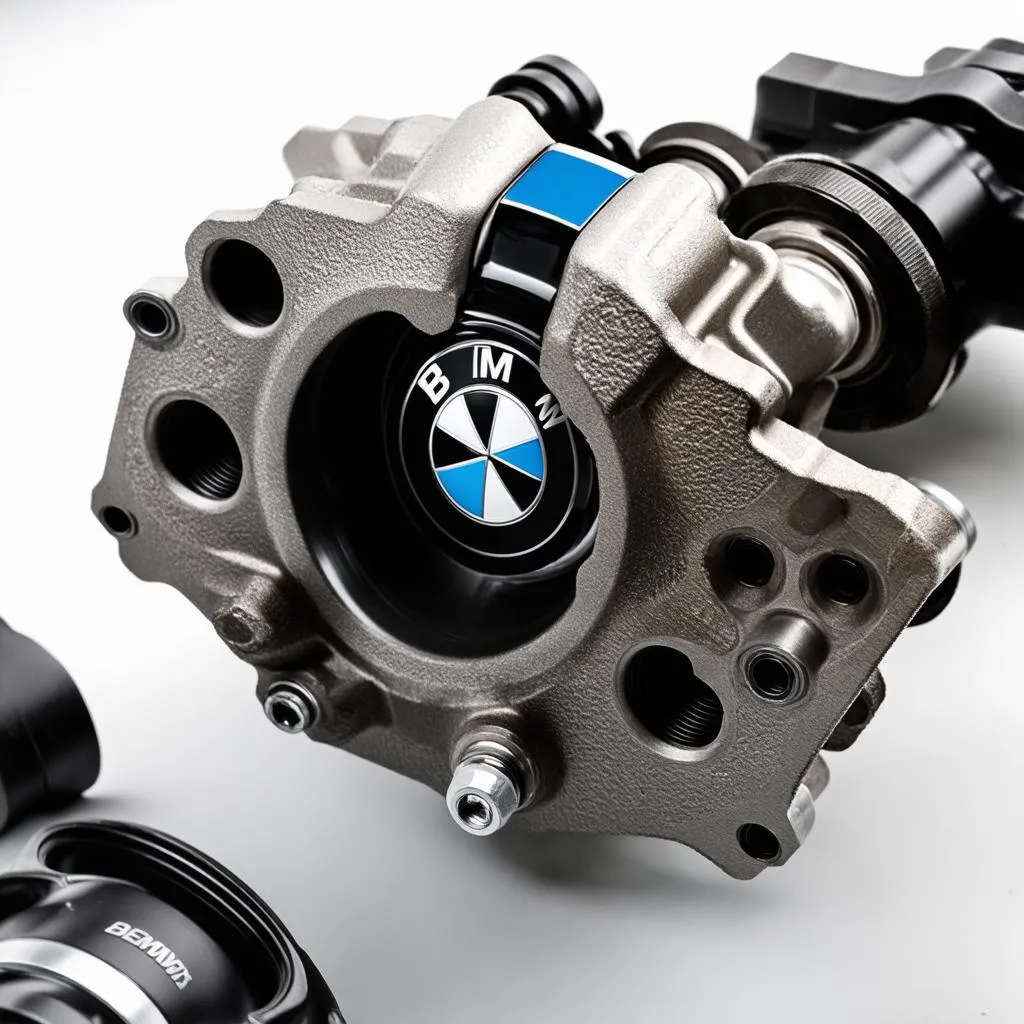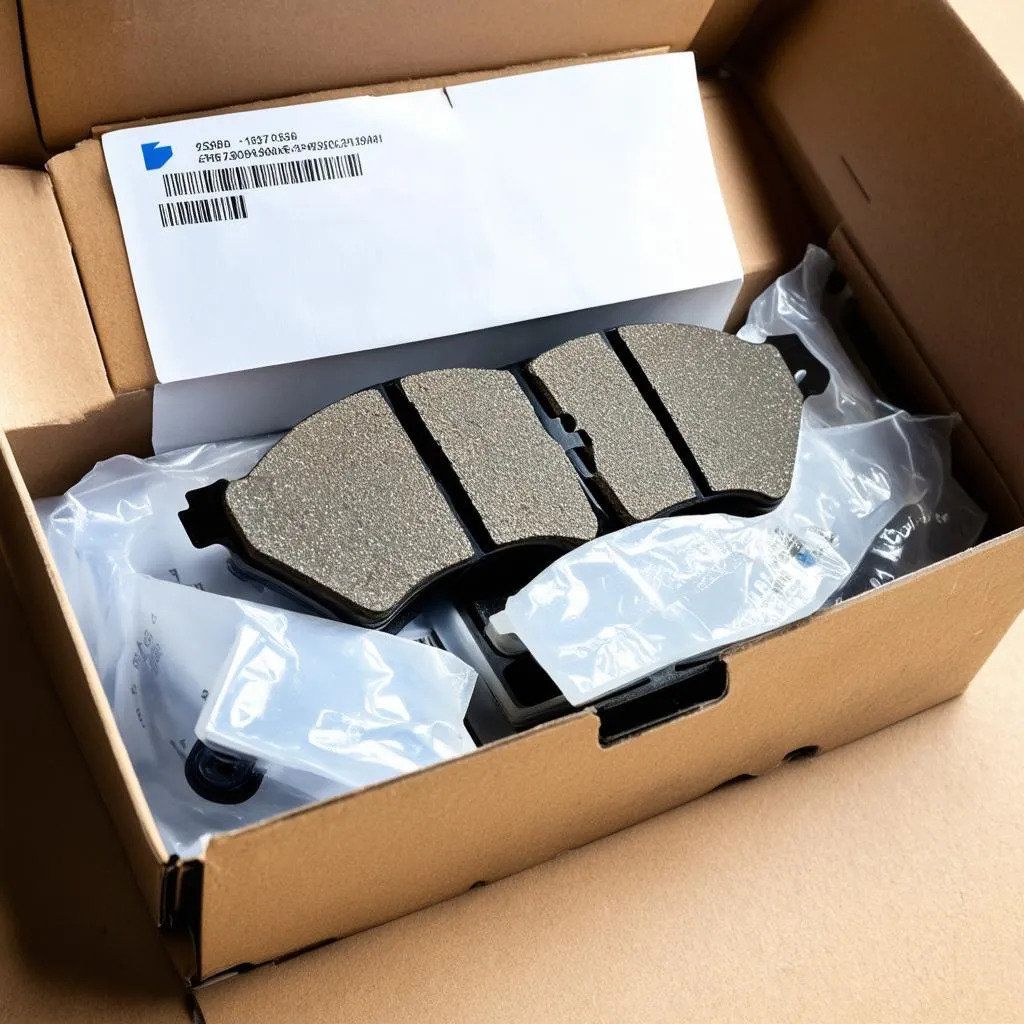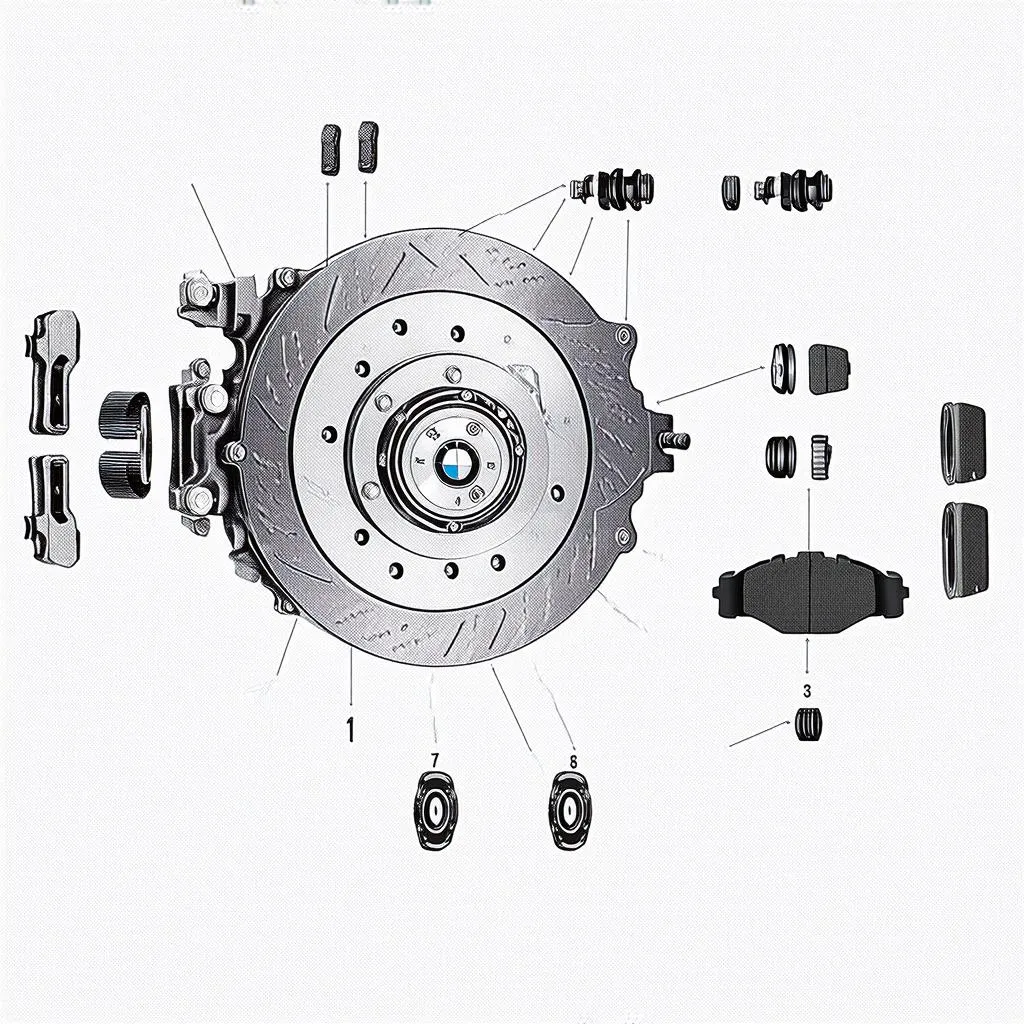BMW Brake Calipers: A Comprehensive Guide for Car Owners
Have you ever heard the dreaded screeching sound coming from your brakes? Or perhaps you’ve noticed a spongy feel when you step on the pedal? These could be signs of a problem with your Bmw Brake Calipers.
Brake calipers are a crucial component of your car’s braking system. They are responsible for squeezing the brake pads against the brake rotors, creating friction and slowing down your car. If your brake calipers aren’t working properly, your car could be at risk of a serious accident.
Why BMW Brake Calipers Matter
Think of brake calipers as the muscles of your car’s braking system. Just like your biceps need to be strong to lift weights, your brake calipers need to be in good working order to effectively stop your car.
Let’s break down the importance of BMW brake calipers from various perspectives:
From a Psychological Perspective
A malfunctioning brake system can cause fear and anxiety. Imagine being on the road and feeling your brakes fail. The sensation of losing control and being unable to stop can be deeply unsettling, even traumatic for some.
From a Mechanic’s Perspective
Brake calipers are complex mechanisms that require expert attention. They consist of multiple components like pistons, seals, and calipers themselves. A professional mechanic knows how to inspect these parts for wear and tear and identify potential issues before they become major problems.
From a Cost Perspective
Neglecting your brake calipers can lead to expensive repairs down the line. A simple caliper rebuild might cost a few hundred dollars, but a full brake system replacement could cost thousands.
From a Technical Perspective
Brake calipers play a critical role in converting hydraulic pressure into mechanical force. This force is then used to press the brake pads against the rotors, slowing down the vehicle. A problem with the calipers can affect the effectiveness of your brakes and even lead to brake fade.
From a Safety Perspective
Brake calipers are essential for your safety and the safety of others. A faulty caliper can cause your car to lose stopping power, increasing the risk of an accident.
Understanding Common BMW Brake Caliper Issues
Here are some common issues you might encounter with BMW brake calipers:
- Sticking calipers: This happens when the caliper pistons become stuck and can’t retract properly. This leads to constant pressure on the brake pads, causing them to wear down quickly and potentially overheating the brake rotors.
- Leaking calipers: If the seals around the caliper pistons are damaged, brake fluid can leak out, reducing brake pressure and compromising braking performance.
- Worn-out calipers: Over time, caliper components can wear down. This can cause the caliper to seize, stick, or leak.
- Damaged brake pads: Worn-out or damaged brake pads can cause uneven wear on the brake rotors and put extra stress on the calipers.
Identifying the Signs of BMW Brake Caliper Problems
- Squealing or grinding noises: This is often the first sign of worn-out brake pads or a problem with the calipers.
- Spongy brake pedal: If the brake pedal feels soft or spongy, it could indicate a problem with the brake fluid level, a leak in the braking system, or a sticking caliper.
- Uneven brake pad wear: If your brake pads wear down unevenly, it could be a sign of a sticking caliper or a problem with the brake rotor.
- Car pulling to one side: If your car pulls to one side when you apply the brakes, it could indicate a problem with the calipers on one side of the car.
- Brake fade: If your brakes start to feel less effective after repeated use, this could be a sign of brake fade, which is often caused by overheated brake rotors due to a sticking caliper.
Taking Care of Your BMW Brake Calipers
Here are some tips to ensure the longevity and optimal performance of your BMW brake calipers:
- Regular maintenance: Inspect your brake calipers during each scheduled oil change. Have a mechanic check for any signs of wear and tear.
- Use high-quality brake pads: Use high-quality brake pads designed specifically for your BMW model. This will help to ensure even wear and tear on the brake rotors.
- Avoid aggressive driving: Aggressive driving can put extra stress on your braking system and lead to premature wear and tear on the calipers.
- Replace worn-out components: If your brake calipers show signs of wear or damage, have them replaced or rebuilt as soon as possible.
What Happens When You Don’t Service Your BMW Brake Calipers
Ignoring brake caliper issues can have serious consequences. Here’s a glimpse into a potential scenario:
Imagine driving your BMW on a busy highway, your brakes start to fail, and you can’t stop in time. This could lead to a serious accident, injuring yourself and others. It’s a situation no one wants to face.
BMW Brake Caliper Replacement & Repair
If you’re facing problems with your BMW brake calipers, it’s important to seek professional help from a reputable mechanic. They can diagnose the problem and recommend the best course of action for repair or replacement.
FAQs: Frequently Asked Questions About BMW Brake Calipers
Q: How often should I replace my BMW brake calipers?
A: Brake calipers typically last between 50,000 and 100,000 miles. However, it’s important to inspect your brake system regularly and replace worn-out parts as needed.
Q: Can I replace my BMW brake calipers myself?
A: While it’s possible to replace brake calipers yourself, it’s a complex job that requires special tools and expertise. It’s best to leave this task to a qualified mechanic to ensure it’s done correctly.
Q: How much does it cost to replace BMW brake calipers?
A: The cost of replacing brake calipers can vary depending on the make and model of your BMW, the type of calipers you need, and the labor costs in your area. Typically, you can expect to pay between $200 and $500 per caliper for replacement.
Q: Are there any signs that my BMW brake calipers are failing?
A: Yes, there are several signs that your BMW brake calipers might be failing. These include squealing or grinding noises when braking, a spongy brake pedal, uneven brake pad wear, and brake fade.
Q: What is the best way to maintain my BMW brake calipers?
A: The best way to maintain your BMW brake calipers is to have them inspected regularly by a qualified mechanic. You should also avoid aggressive driving and use high-quality brake pads.
Q: What are some common BMW models that require brake caliper replacement?
A: Brake caliper replacements are common in several BMW models, including the BMW 3 Series, 5 Series, X3, X5, and X6.
Need Help with BMW Brake Calipers?
If you’re having problems with your BMW brake calipers, contact us at [Whatsapp: +84767531508]. Our team of expert mechanics can provide you with prompt and reliable service.
Related Articles
Conclusion
BMW brake calipers are essential components that ensure the safety and performance of your car. By understanding their importance and knowing how to spot warning signs, you can take steps to keep your BMW brakes in top condition. Remember, regular maintenance is key to avoiding costly repairs and ensuring a safe and enjoyable driving experience.
 BMW brake calipers
BMW brake calipers
 BMW brake pads
BMW brake pads
 BMW brake system
BMW brake system
